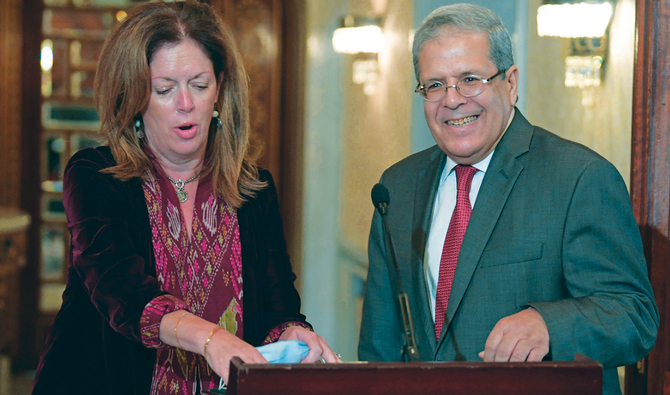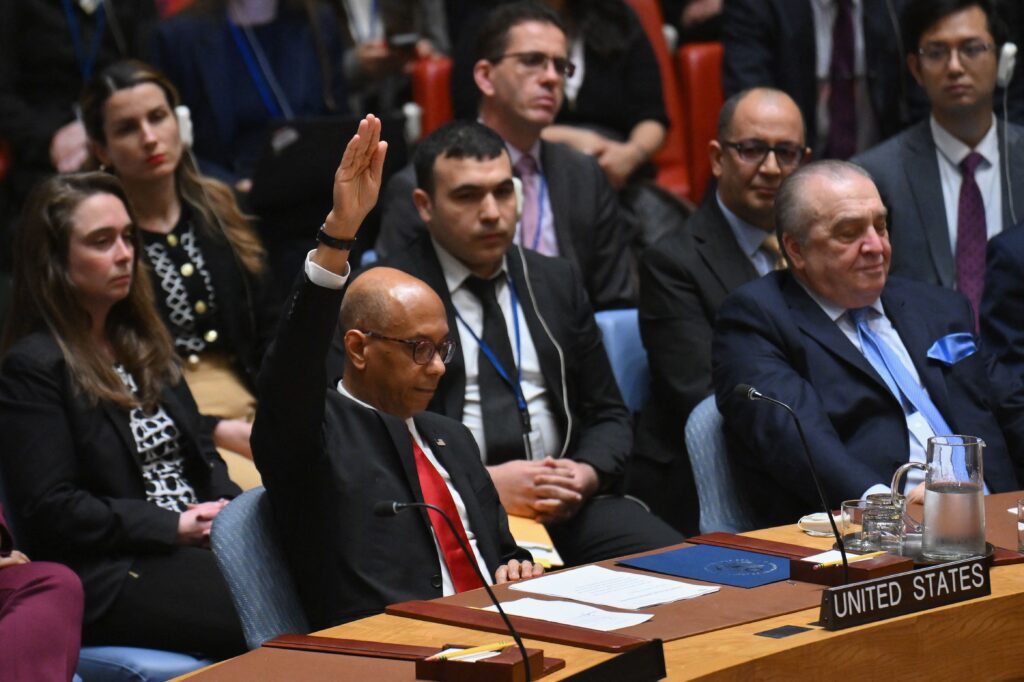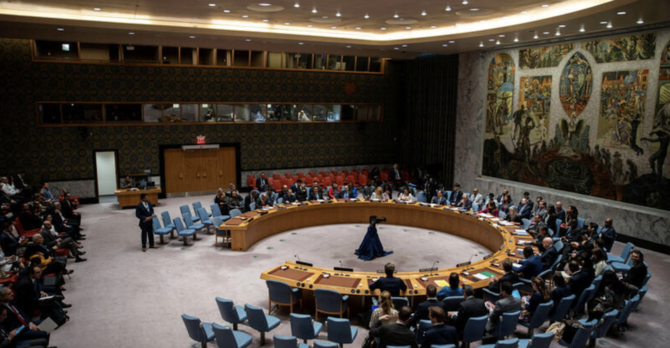CARTHAGE, Tunisia: The UN’s Libya envoy on Monday urged rival parties to place the national interest before political ambitions when they meet for talks next month aimed at ending a decade of bloodshed.
The North African country is dominated by armed groups, riven by local conflicts and divided between two bitterly opposed adminstrations: A United Nations-recognized unity government based in Tripoli and its eastern-based rival backed by strongman Khalifa Haftar.
Neighbouring Tunisia is set to host talks in early November including representatives of civil society, tribesmen, political leaders, and members of bodies representing both administrations.
“What we want to see in terms of participation is people who are not there for their own political aspirations, but for their country,” said UN envoy Stephanie Williams on Monday, after meeting Tunisian President Kais Saied.
Asked whether Haftar or unity government chief Fayez Al-Sarraj would be present, she said participants would be able to take part on the condition “that they remove themselves from consideration in high government positions.”
This included membership of the key Presidential Council, the prime minister’s job and ministerial posts, she told AFP.
The talks are intended to prepare for national elections, she added.
Tunisia’s Foreign Minister Othman Jerandi called for “a dialogue between Libyans that could lead to a political solution to the crisis.”
Saied spoke on Monday with his Algerian counterpart Abdelmadjid Tebboune, who saluted the renewed dialogue and said that Algeria, another neighbor of Libya, was “always at Tunisia’s side.”
Tebboune also spoke of a visit to Tunisia after the Nov. 1 referendum on constitutional reform in Algeria.
The Algerian president’s office confirmed that the two men had spoken via telephone.
“The President of the Republic, Abdelmadjid Tebboune, received a telephone call on the part of his counterpart Kais Saied, and they reviewed bilateral relations and his planned visit to Tunisia,” it said in a statement.
Tebboune “welcomed Tunisia’s organization of inter-Libyan dialogue under the auspices of the UN,” the statement said.
A previous agreement between rival Libyan sides, signed in Morocco in 2015, created a unity government that was never recognized by Haftar.
In April 2019 he launched an offensive to seize Tripoli, but was pushed back after over a year of fighting.
Since his forces were driven from western Libya, the rival sides have resumed talks on specific themes: Institutions, military and political affairs.
The Tunis talks will begin on Oct. 26 by videoconference, before continuing face-to-face in early November.
AFP






















